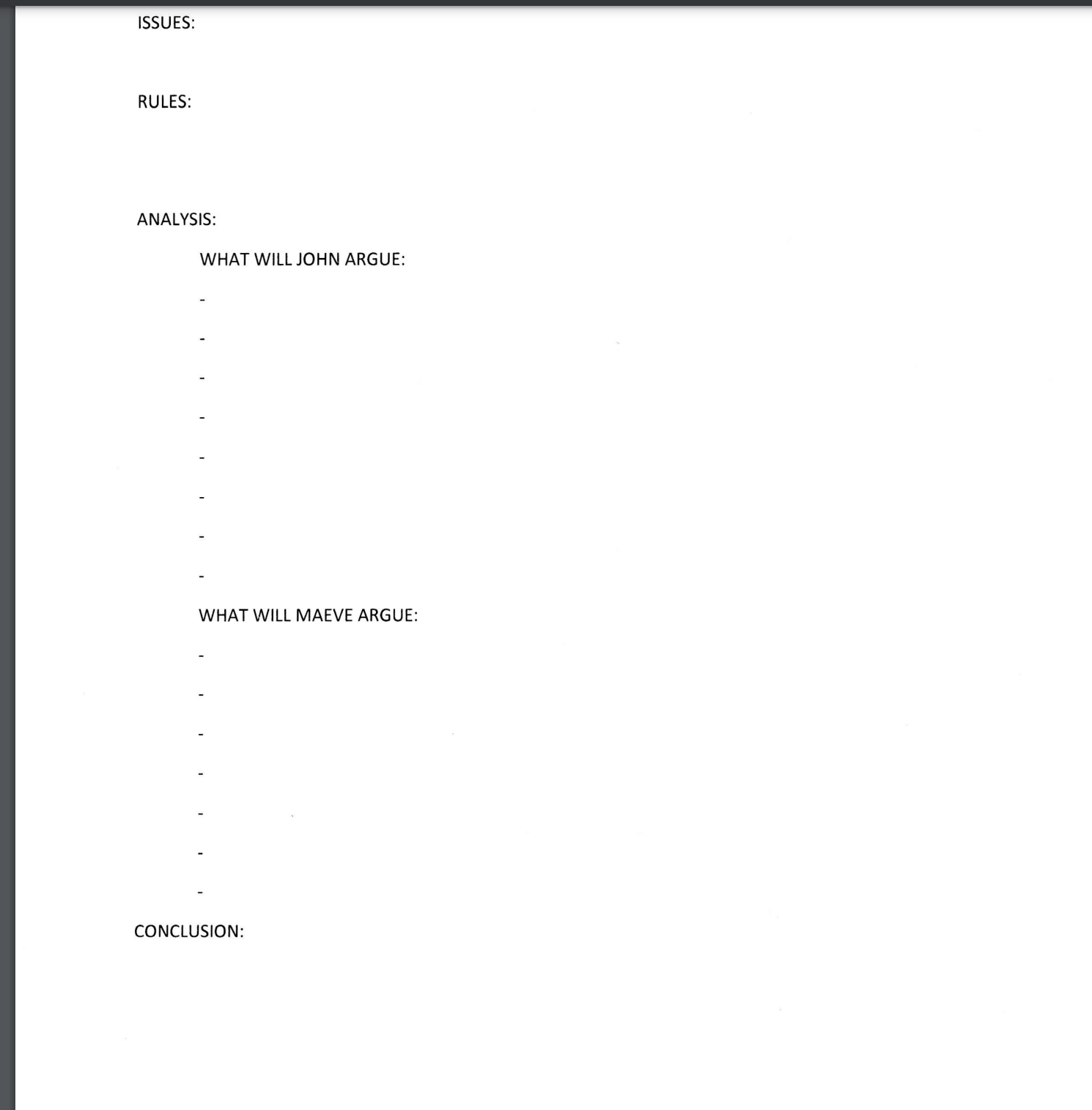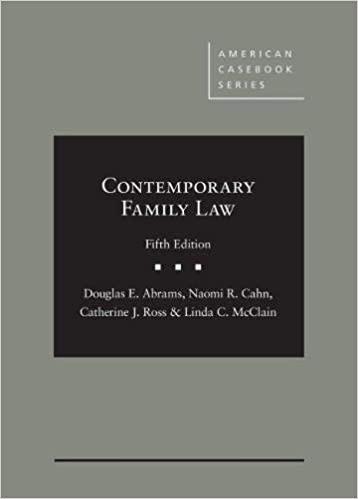Question
IRAC FACT PATTERN: This is a lawsuit between John and the nationally known store called Lowes which sells construction materials, building supplies, and tools. Lowes
IRAC FACT PATTERN:
This is a lawsuit between John and the nationally known store called "Lowes" which sells construction materials, building supplies, and tools. Lowes owns and registered the trademark in its name "Lowes" and this trademark is well known throughout the United States.
Jack has engaged in the following activities for which he has been sued by Lowes.
- Jack started performing a comedy routine at comedy clubs where he jokes about people who shop and work Lowes . He also jokes about Lowes' products and services. The name of his comedy routine is "How Lowe Can You Go". His comedy style is to say vulgar things about Lowes' customers and employees. He uses the Lowes' trademark in his comedy routine. He makes about $100,000 a year on this comedy routine.
- Jack started a company called "Lowe Jeans" that makes and sells jeans that hang low on the waste. Imprinted on the jeans is the image of a tool belt. Lowes does not sell jeans in its stores or on its website. Jack does not sell these jeans in hardware stores but rather sells them in high end clothing stores.
- Jack started a company called "Lows" that operates small hardware stores that sell tools and paint but not lumber and not other construction material. These stores do compete with Lowes which sells tools and paint. Jack's marketing for his stores is "Lows stands for low prices."
- One of the tools Jack sells at Lows is an electric table saw that looks and works similar to, but is not an exact replica, of a table saw that Lowes sells. There is an issue as to how "similar" the two saws are. Lowes has patents (utility and design) on that saw. Jack's saw has taken market share from Lowes' saw.
- Jack hired Maeve to work for Lows. It turns out that Maeve used to work for Lowes and while working for Lowes, she helped prepare a marketing study that involved consumers who need to buy paint and tools. She brought that study with her when she started her job working for Jack. She told Jack the study was not secret or confidential. Jack thought she might not be telling the truth on that. Jack never checked with Lowes to verify the study was not confidential or secret. Jack proceeded to use the Lowes marketing study and it helped him get more business for his Lows stores. He could have created his own marketing study for about $1,000 but he just decided to use the Lowes marketing study that Maeve brought with her.
- The last thing Jack did (and he started doing it around the time he was opening the Lows tool and paint stores)is that during his comedy routine, he started making false statements about what he said was the poor quality of Lowes' products. Jack would hand out advertising flyers at his comedy club appearances promoting his Lows stores and brands.
Lowes has sued Jack. What claims have Lowes made and what is the evidentiary basis for those claims based on the fact pattern above? What can Jack argue to avoid liability (paying money) on those claims? How do you think the court would rule on these claims?

Step by Step Solution
There are 3 Steps involved in it
Step: 1

Get Instant Access to Expert-Tailored Solutions
See step-by-step solutions with expert insights and AI powered tools for academic success
Step: 2

Step: 3

Ace Your Homework with AI
Get the answers you need in no time with our AI-driven, step-by-step assistance
Get Started


